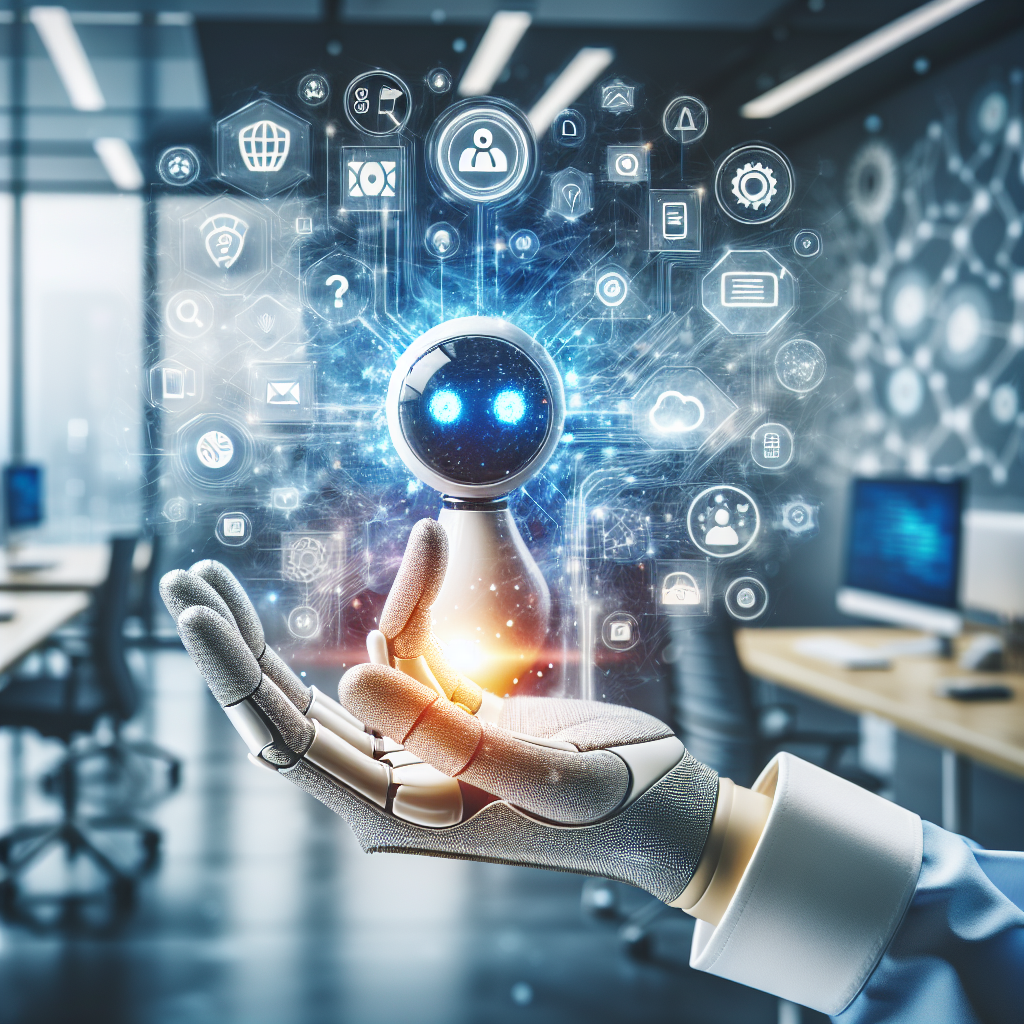Artificial Intelligence (AI) has revolutionized the way we live and work in recent years. One of the most significant advancements in AI technology is the development of AI-powered virtual assistants. These intelligent software programs are changing the way we work by providing personalized assistance, streamlining tasks, and improving productivity.
AI-powered virtual assistants are designed to mimic human interaction and perform tasks on behalf of users. They can understand natural language commands, learn from user interactions, and adapt to individual preferences over time. These virtual assistants can perform a wide range of tasks, including scheduling meetings, setting reminders, answering questions, and even making recommendations based on user behavior.
One of the most popular examples of AI-powered virtual assistants is Apple’s Siri, Amazon’s Alexa, Google Assistant, and Microsoft’s Cortana. These virtual assistants have become an integral part of our daily lives, helping us navigate our busy schedules and stay organized.
The rise of AI-powered virtual assistants has had a profound impact on the way we work. Here are some ways in which these intelligent software programs are changing the way we work:
1. Increased Productivity: AI-powered virtual assistants can handle repetitive and time-consuming tasks, allowing employees to focus on more strategic and high-value work. Virtual assistants can schedule meetings, set reminders, and provide information quickly and efficiently, saving employees time and increasing productivity.
2. Personalized Assistance: AI-powered virtual assistants can learn from user interactions and adapt to individual preferences over time. This personalized assistance can help employees stay organized, make better decisions, and improve their overall work performance.
3. Improved Communication: Virtual assistants can facilitate communication between team members by scheduling meetings, sending reminders, and providing updates in real-time. This streamlined communication can help teams collaborate more effectively and stay on track with their projects.
4. Enhanced Customer Service: AI-powered virtual assistants can help businesses provide better customer service by answering common questions, resolving issues, and providing support 24/7. Virtual assistants can handle a high volume of customer inquiries quickly and efficiently, improving customer satisfaction and loyalty.
5. Cost Savings: By automating repetitive tasks and streamlining processes, AI-powered virtual assistants can help businesses save time and money. Virtual assistants can perform tasks at a fraction of the cost of hiring human employees, making them a cost-effective solution for businesses of all sizes.
Despite the numerous benefits of AI-powered virtual assistants, some concerns have been raised about their impact on the workforce. Critics argue that virtual assistants could potentially replace human jobs and lead to unemployment. However, proponents of virtual assistants argue that they can complement human workers by handling routine tasks and allowing employees to focus on more strategic and creative work.
To address some common questions and concerns about AI-powered virtual assistants, here is a FAQ section:
Q: What are the main benefits of using AI-powered virtual assistants in the workplace?
A: AI-powered virtual assistants can increase productivity, provide personalized assistance, improve communication, enhance customer service, and save businesses time and money.
Q: How do AI-powered virtual assistants learn from user interactions?
A: Virtual assistants use machine learning algorithms to analyze user interactions, identify patterns, and adapt to individual preferences over time.
Q: Are AI-powered virtual assistants secure and compliant with data privacy regulations?
A: Virtual assistants are designed to prioritize data privacy and security. They use encryption, authentication, and access controls to protect sensitive information and comply with data privacy regulations.
Q: Can AI-powered virtual assistants be customized to meet specific business needs?
A: Yes, virtual assistants can be customized to perform specific tasks, integrate with existing systems, and meet the unique needs of individual businesses.
Q: What are some potential challenges of using AI-powered virtual assistants in the workplace?
A: Some potential challenges include concerns about data privacy, security, job displacement, and the need for ongoing training and support for employees.
In conclusion, AI-powered virtual assistants are changing the way we work by providing personalized assistance, streamlining tasks, and improving productivity. These intelligent software programs are becoming an essential tool for businesses looking to stay competitive in today’s fast-paced and digital world. By harnessing the power of AI technology, virtual assistants are transforming the workplace and empowering employees to work smarter, not harder.

